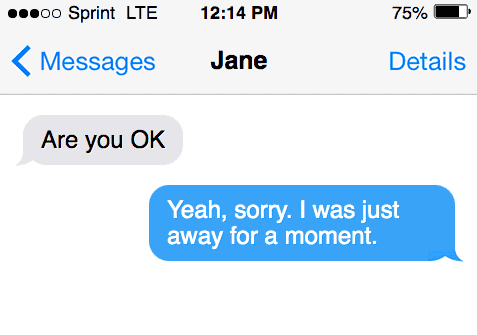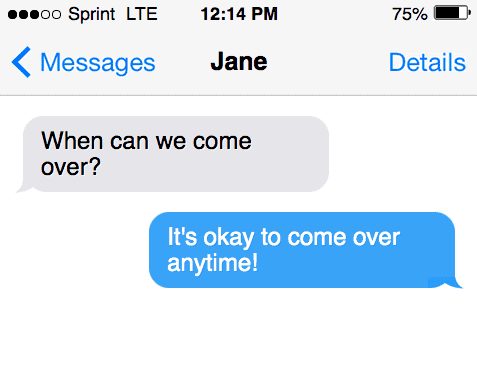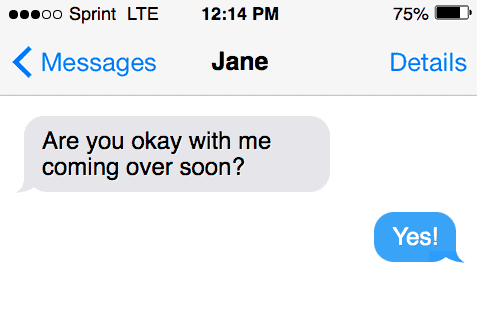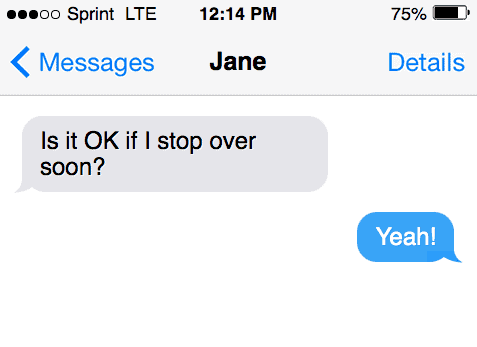Ok vs okay? What’s the difference? Are both okay and ok acceptable to use? Which is the correct spelling and grammar between ok vs okay? Is ok an abbreviation? Keep reading to find out more about the insanely popular and versatile term, okay, OK?
OK vs okay: what’s the difference?
The age-old debate of whether the correct usage is OK or okay can finally be put to rest.
The short answer is whichever you prefer! OK is a versatile term because it’s not a formal word in the English language. That means okay and ok, OK, okie-doke are ALL a-ok!
Keep in mind: these are all acceptable spellings of ok because it is an informal word. Therefore, it should not be used in formal writing, like business correspondences, academic articles or university essay writing.
What does okay mean?
Is there a real definition for the word okay? Well, there is more than one version of the term, and its meaning depends on the context in which it’s used.
In its noun form, ok is understood as slang meaning ‘yes,’ or to express agreement to an offer or proposition.
Alternatively, according to the Oxford English Dictionary, (whose earliest known usage is from 1839), broadly means things are good or alright.

See below:
Question: “Did you want to pick up Chinese food for dinner tonight?”
Answer: “Okay, sounds good!”
Question: “Did you want to go for a walk in the park today?”
Answer: “Ok! Sure thing.”
Used as an adverb, ok modifies or qualifies a verb or adjective, ok can describe something as being fine, well enough or all right.
See this use case of okay and ok, below:
Sentence: “She’s doing okay, considering everything she’s been through.”
Sentence: “Will the puppy be okay if we leave him alone for a couple of hours?”
While the same word (and sometimes spelled the same), the use case and meaning differs slightly from its use as a noun versus as an adverb.
What gives ok its flexibility in the English language and grammar is that its style guide (according to the Chicago Manual of Style), is immensely flexible and widespread. OK can be used as a noun, verb, adjective conjunction and as an interjection, in a various contexts and for numerous reasons.

When to use ok/okay?
When is it okay to use ok in a sentence? Apparently, it’s oftentimes okay to use ok in text messages, and just regular old conversation with people.
Check out the below sentences to see when and where to use okay and ok in a sentence.
EXAMPLES OF HOW TO USE OKAY and OK IN A SENTENCE:
- “How are you doing? Is everything going okay?”
- “OK, sounds good, I’ll be there at 7 PM.”
- “Will you be okay waiting here by yourself?”
- “I wouldn’t say Sam is a perfect student, but she’s okay.”
- “Okay, tell me what you need, and I’ll make sure to pick it up from the grocery store on my way home.”
- “OK, now, where were we?”
- “It’s okay to feel sad from time to time.”
- “If you could OK the document it would be appreciated.”
- “I’m shocked to hear he did okay on the exam!”
- “Sally said she’d be ok going to the beach today.”
Hopefully the sentences above give a clearer understanding of when to use ok and okay in a sentence.
Is ok in all capital letters?
As mentioned above, the casual and conversational phrase ‘ok,’ does not have many rules associated with its use, since it is an essentially casual term, used for informal writing. That means it’s fine to write ok in using capital letters.
Similarly, it is also fine to include periods, or not. The nice thing about ok is it’s ease of use, and that it’s basically impossible to get it wrong.
The origin story of ok (or okay.)
Most likely, OK started as a shortened version of express agreement to a proposal of some kind, (though there is evidence its initial use was intended to be sarcastic.)
In fact, there’s an entire novel dedicated to the story of okay. Seriously, it’s written by Allan Metcalf and it’s titled OK: The Improbable Story of America’s Great Word.

How OK came to be
The way ok/okay/OK came into being is a strange tale, and there are competing stories about how it came into being in the first place. When the phrase initially appeared in English, it was in a Boston newspaper article, and was meant as a joke.
Charles Gordon Greene, the writer and editor at the Boston Morning Post, included ‘OK’ to represent ‘oll korrect.’ This short form of ‘oll korrect,’ was known within certain elite circles at the time, and it was a recognized joke and intentional misspelling of ‘all correct.’
‘Oll Korrect’
‘Oll Korrect’ is not a real word according to the Oxford English Dictionary, and it wasn’t at the time it was written either. Greene wrote OK as a joke (think of it like a 19th century meme), to poke fun at a newspaper column in Providence, Rhode Island. Allegedly, ‘OK’ was written to be sarcastic, and was placed next to a statement in the article which Greene likely did not believe to be true. Greene’s ‘OK’ was and intentional misspelling of ‘all correct,’ and can be compared to LOL today.

OK origins
OK continued to appear in subsequent newspaper articles, and shortly thereafter it came up again.
OK was former president Martin Van Buren presidential campaign slogan in 1831. ‘OK,’ was the nickname given to Van Buren as a short form of ‘Old Kinderhook.’ The Old Kinderhook pseudonym was meant as a reference to Van Buren’s hometown of Kinderhook, New York.
This makes ok, okay, okie-doke, a ok, one of the earliest slang terms to have been born from American soil, and written in true American English.
Sources
- You Could Look It Up – FAQ Item
- OK: The Improbable Story of America’s Greatest Word
- Martin Van Buren – Wikipedia
- Kinderhook (town), New York – Wikipedia
- The Birth of OK, 175 Years Ago – HISTORY
- Why do we say ‘OK’? – The Conversation
- OK Definition & Meaning – Merriam-Webster
Inside this article
Fact checked:
Content is rigorously reviewed by a team of qualified and experienced fact checkers. Fact checkers review articles for factual accuracy, relevance, and timeliness. Learn more.
Core lessons
Glossary
- Abstract Noun
- Accusative Case
- Anecdote
- Antonym
- Active Sentence
- Adverb
- Adjective
- Allegory
- Alliteration
- Adjective Clause
- Adjective Phrase
- Ampersand
- Anastrophe
- Adverbial Clause
- Appositive Phrase
- Clause
- Compound Adjective
- Complex Sentence
- Compound Words
- Compound Predicate
- Common Noun
- Comparative Adjective
- Comparative and Superlative
- Compound Noun
- Compound Subject
- Compound Sentence
- Copular Verb
- Collective Noun
- Colloquialism
- Conciseness
- Consonance
- Conditional
- Concrete Noun
- Conjunction
- Conjugation
- Conditional Sentence
- Comma Splice
- Correlative Conjunction
- Coordinating Conjunction
- Coordinate Adjective
- Cumulative Adjective
- Dative Case
- Determiner
- Declarative Sentence
- Declarative Statement
- Direct Object Pronoun
- Direct Object
- Diction
- Diphthong
- Dangling Modifier
- Demonstrative Pronoun
- Demonstrative Adjective
- Direct Characterization
- Definite Article
- Doublespeak
- False Dilemma Fallacy
- Future Perfect Progressive
- Future Simple
- Future Perfect Continuous
- Future Perfect
- First Conditional
- Irregular Adjective
- Irregular Verb
- Imperative Sentence
- Indefinite Article
- Intransitive Verb
- Introductory Phrase
- Indefinite Pronoun
- Indirect Characterization
- Interrogative Sentence
- Intensive Pronoun
- Inanimate Object
- Indefinite Tense
- Infinitive Phrase
- Interjection
- Intensifier
- Infinitive
- Indicative Mood
- Participle
- Parallelism
- Prepositional Phrase
- Past Simple Tense
- Past Continuous Tense
- Past Perfect Tense
- Past Progressive Tense
- Present Simple Tense
- Present Perfect Tense
- Personal Pronoun
- Personification
- Persuasive Writing
- Parallel Structure
- Phrasal Verb
- Predicate Adjective
- Predicate Nominative
- Phonetic Language
- Plural Noun
- Punctuation
- Punctuation Marks
- Preposition
- Preposition of Place
- Parts of Speech
- Possessive Adjective
- Possessive Determiner
- Possessive Case
- Possessive Noun
- Proper Adjective
- Proper Noun
- Present Participle
- Prefix
- Predicate



